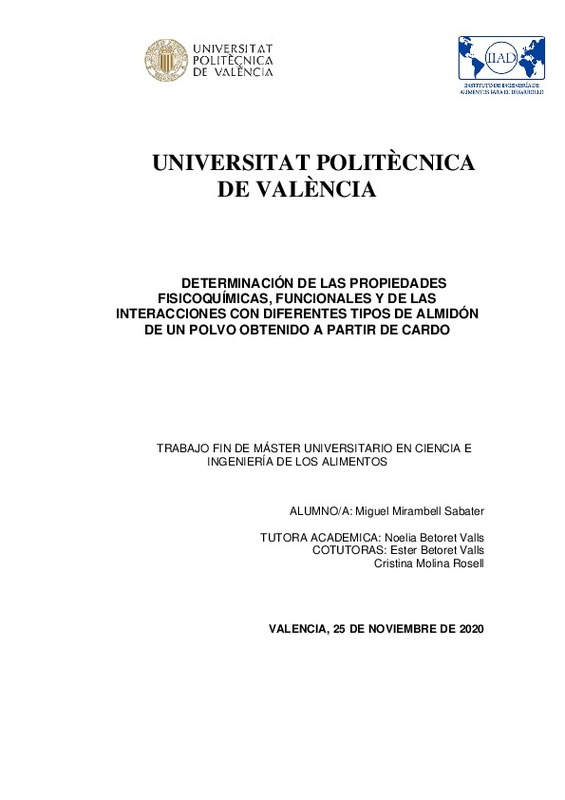JavaScript is disabled for your browser. Some features of this site may not work without it.
Buscar en RiuNet
Listar
Mi cuenta
Estadísticas
Ayuda RiuNet
Admin. UPV
Determinación de las propiedades físico-químicas y funcionales y de las interacciones con diferentes tipos de almidón de un polvo obtenido a partir de cardo
Mostrar el registro completo del ítem
Mirambell Sabater, M. (2020). Determinación de las propiedades físico-químicas y funcionales y de las interacciones con diferentes tipos de almidón de un polvo obtenido a partir de cardo. Universitat Politècnica de València. http://hdl.handle.net/10251/157876
Por favor, use este identificador para citar o enlazar este ítem: http://hdl.handle.net/10251/157876
Ficheros en el ítem
Metadatos del ítem
| Título: | Determinación de las propiedades físico-químicas y funcionales y de las interacciones con diferentes tipos de almidón de un polvo obtenido a partir de cardo | |||
| Autor: | Mirambell Sabater, Miguel | |||
| Director(es): | Molina Rosell, Maria Cristina | |||
| Entidad UPV: |
|
|||
| Fecha acto/lectura: |
|
|||
| Resumen: |
[ES] El objetivo de este proyecto es la determinación tanto de las propiedades tecnológicas y funcionales del cardo, como de sus interacciones con almidón para su utilización como ingrediente en productos derivados de ...[+]
[EN] The objective of this study was to determine both the technological and functional properties of the Cynara cardunculus (common thistle) plant, as well as its interactions with water and starch for its use as an ...[+]
|
|||
| Palabras clave: |
|
|||
| Derechos de uso: | Reserva de todos los derechos | |||
| Editorial: |
|
|||
| Titulación: |
|
|||
| Tipo: |
|
recommendations
Este ítem aparece en la(s) siguiente(s) colección(ones)
-
ETSIAMN - Trabajos académicos [3555]
Escuela Técnica Superior de Ingeniería Agronómica y del Medio Natural







